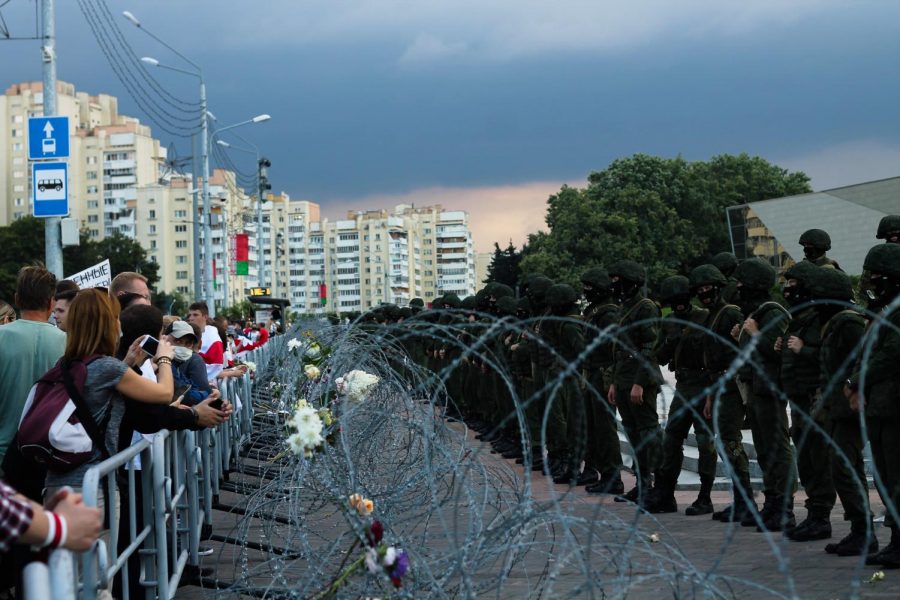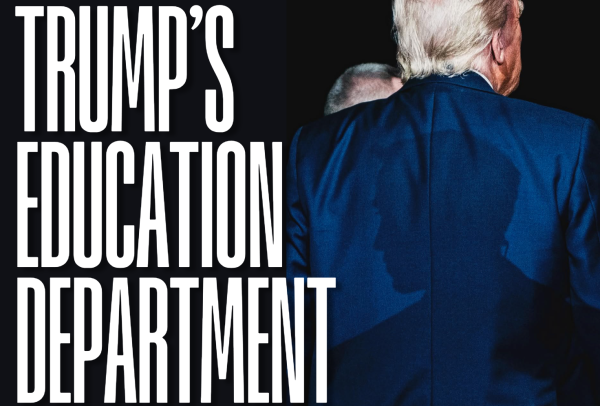Understanding the Importance of the Belarus Protests
This Sunday, Sept. 20, marked the sixth successive week of nationwide protests in Belarus, where six-term president Alexander Lukashenko is widely presumed to have stolen his victory in last month’s election. Media coverage has largely moved on, but protesters have not wavered in their demands for a free and fair election, even in the face of unmitigated state violence. Although the road ahead will be difficult, it is essential that Belarusians remain unrelenting in their fight for justice and that the international community does what it can to offer support and bear witness.
Belarus has long faced setbacks on the road towards a free and fair system of governance — which is commonly referred to as “Europe’s last dictatorship.” While it experienced a brief period of democratic self-governance after the fall of the Soviet Union in 1991, widespread economic hardship paved the way for the 1994 election of Alexander Lukashenko, a charismatic strongman who promised to restore Belarus to its former Soviet glory. And while he did reduce poverty — doing so through cultivating a near-total dependence on Russian economic support — by 1996, he had leveraged his success, as well as the Belarusian people’s desire for stability, to virtually seize complete authoritarian control. Since then, he has operated Belarus as a police state. He maintains an iron grip on power by eliminating the free press, installing his own secret police reminiscent of the KGB and allegedly having the occasional political opponent imprisoned or killed.
However, in 2014 serious fractures in Lukashenko’s regime began to emerge. Because Lukashenko elected not to officially recognize Russia’s annexation of the Crimean Peninsula, Russia withdrew the majority of its financial support, causing nationwide economic stagnation. Later, Lukashenko’s refusal to take precautions against the COVID-19 pandemic further angered many Belarusians. By the 2020 election, public support had eroded so greatly that, for the first time since his 26-year presidency began, his opposition was able to mount not just one, but three viable candidates. However, rather than addressing any of their legitimate concerns, Lukashenko responded by either jailing or exiling all three. Out of this incident emerged Sviatlana Tsikhanouskaya, the wife of one of the jailed candidates, who ultimately decided to run in her husband’s place. Working closely with two other opposition figures, Veronika Tsepkalo and Maria Kolesnikova, Tsikhanouskaya drew historic levels of support across Belarus. If given a fair chance, her campaign estimates she would have taken as much as 60 to 70% of the vote. However, the state’s official tally counted her with only 10% of the vote, leading to the near-universal conclusion that she was denied anything even resembling a fair chance.
The early protests, which have been widely covered, were met with state violence on an unprecedented scale. Peaceful demonstrators were indiscriminately detained, beaten, tortured and made to “disappear” by riot police, with the ultimate goal of intimidating anyone who might consider joining them. Soon after, Tsikhanouskaya was forced to flee the country, following what appeared to be threats to her family’s life.
Presently, violence and intimidation are still employed at alarming rates, and Belarusian security forces have not swayed in their loyalty to Lukashenko nor their willingness to brutalize protesters. However, their attacks are now somewhat more targeted, especially towards leaders of the opposition. Having realized that protesters are seemingly immune to being scared off, Lukashenko hopes that the movement will crumble in the absence of leadership. And indeed, he has successfully detained or expelled all but one major opposition leader.
Lukashenko’s efforts to cling to power have also been bolstered by support from Russia. Given the two countries’ strained relationship, it was not immediately clear whether Russia would agree to provide aid to Lukashenko. However, it would appear that Russian President Vladimir Putin’s expansionist motives, as well as his vested interest preventing the successful removal of any autocrat via peaceful protest, ultimately superseded any lingering tensions. As a result, Lukashenko now has the full force of Russia behind him, as well as access to a Russian “reserve force” to respond “if the protests get out of control.” Following a summit in Sochi last week, Lukashenko has also secured the promise of a $1.5 billion loan from Russia to support Belarus’ struggling economy. But that is not to say that this aid comes without cost: If Lukashenko does remain in power, the Belarusian state will now be entirely beholden to the Kremlin, if not literally absorbed in the same fashion as the Crimean Peninsula. Given Russia’s past treatment of its own pro-democracy advocates — such as Alexander Navalny, who only narrowly survived being poisoned last month in an attack widely attributed to Russian officials — the stakes for Belarusian protestors have only increased.
But even in the face of relentless violence and ominous new alliances, the Belarusian people remain just as emboldened as they were six weeks ago. Since Aug. 9, protests have continued daily, with Sunday gatherings in the capital city of Minsk routinely drawing crowds in the hundreds of thousands. Guided by the Coordinating Council, a group consisting of Belarusian cultural figures and opposition leaders founded in late August, including Tsikhanouskaya. With the group’s guidance, protesters have indicated that they will continue to demonstrate until a new, fair election is called. And while it is true that all but one member of the Council have been imprisoned or forced to flee the country, the movement for free elections has now so completely gripped Belarusian culture that the absence of clear leadership on the ground has not stopped it. Rather, vast and disparate sects of the country have continued to risk their lives and livelihoods to carry this movement forward — employees of state-owned media companies and factories have gone on strike, hackers have risked harsh sentences to expose the personal information of security officers, students have boycotted the reopening of schools and everyone — from families with young children to the elderly — has taken to the streets to protest.
Women have been especially instrumental in sustaining the protests. Despite Lukashenko’s assertion that “[Belarusian] society has not matured enough to vote for a woman,” it has been women who have rallied the opposition, who have organized and led demonstrations and who have succeeded in putting pressure on the Lukashenko administration while remaining committed to nonviolence. It has also been women who have taken some of the most public risks for the cause, and who have since become the faces of the movement — in the time since the election Kolesnikova has been seen ripping up her passport rather than getting expelled to Poland, and 73-year-old great-grandmother Nina Bahinskaya has become an icon after directly confronting police on multiple occasions.
Still, despite the protestors’ indefatigable efforts, the two sides remain deadlocked. Russia’s backing all but ensures that Lukashenko will not be toppled immediately. And Lukashenko, for his part, declared in August that “until you kill me, there will not be any more elections.”
It is perhaps a natural inclination, then, to take this lack of obvious forward progress as a sign that these protests have all been to little effect. However, it is important to recognize what an incredible victory it is that the protests have carried on for so long, that they have taken place at all in a country where “if you clap in a group of five on the sidewalk, you will be detained,” as one reporter put it. It is also important that we, as citizens of the international community, continue to afford this struggle the attention it deserves, and remain cognizant of whatever small ways we can help — for example, by not reelecting a president who openly embraces dictatorial regimes. Above all, though, we must recognize how vitally important it is that these protests carry on. It is easier said than done, easier to ask someone else to continue enduring violence and uncertainty than it is to actually live it. But as authoritarianism continues to gain more and more legitimacy, both around the world and on our own doorstep, it becomes increasingly clear that democracy is very rarely the path of least resistance. No matter what it costs, no matter how long it takes and how impossible it seems, it is still worth fighting for.
Madison Hennessy, FCRH ’22, is a political science major from Briarcliff, N.Y.









































































































































































































